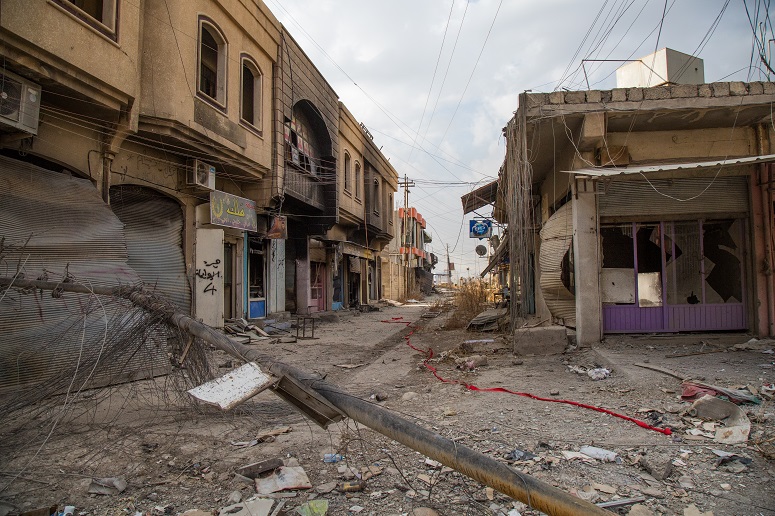
One more wave of persecution and Christianity could be erased from Iraq, a church leader has warned.
Habib Nafali, Chaldean Catholic archbishop of Basra, said the killing and displacement of Iraq’s Christians and “systematic violence” towards them had been intended to force them out of Iraq.
“If this is not genocide, then what is genocide?” he asked, speaking at a UK church, as reported by the Catholic News Service.
He said he believed the Islamic State group has not yet been defeated but has instead gone underground and is suspected to be behind recent killings of Iraqi women who dressed in Western styles.
According to the archbishop, Christians now represent only 1 per cent of Iraq’s entire population: he said their number has shrunk to 250,000 from 1.5 million over the past 15 years.
“There are still more than maybe a quarter of a million of us struggling to stay in our homeland,” said Archbishop Nafali. “Others went to more than 70 countries, which is a crime against humanity when you find Chaldeans and [Syriacs] everywhere – in Sweden, Denmark, in the UK and the United States.”
‘You start to feel lonely’
Meanwhile, a young Chaldean Catholic from Baghdad, Safa Al-Alqoshy, presented the situation in Iraq at a synod of bishops in Rome on 3-28 October, as reported by Catholic news site Crux.
He spoke about the long-lasting trauma of those who have survived and their fears over an uncertain future.
He said that the decline in employment opportunities and quality of education, and the lack of international support, are some of the factors that prompt emigration. Families such as his own are being torn apart, Al-Alqoshy said.
“Maybe from time to time on Facebook we tell each other ‘hi’,” he said. “If we think about that, it has a psychological effect, because you start to feel that you are lonely. To each friend you say, ‘I hope to see you soon’, but you will never see him again because he will go to Australia or America and you cannot reach there.”
Speaking of his own trauma, Al-Alqoshy said he had been abducted at the age of 12 but returned to his family after his kidnappers realised they had taken the wrong child. He said he still has nightmares about the incident. He also spoke about the killing of his two friends in a car-bomb attack in 2009 outside his parish.
“There are not a lot of car bombs, the kidnapping has become less, but every young person, every Iraqi, has these memories in their mind. So maybe this will have a negative effect in the future,” he said.
According to Al-Alqoshy, security is still a concern despite IS’s military defeat and fears of a repeat are another cause of emigration.
“We appreciate and need prayers, but we need more than prayers,” he said, “because every time when someone from Iraq gives a speech, all people start crying and clapping, but after that everyone forgets and goes home.”
Al-Alqoshy suggested that there should be international pressure on Iraq’s government to provide tangible support to Christians, including guarantees for their security.